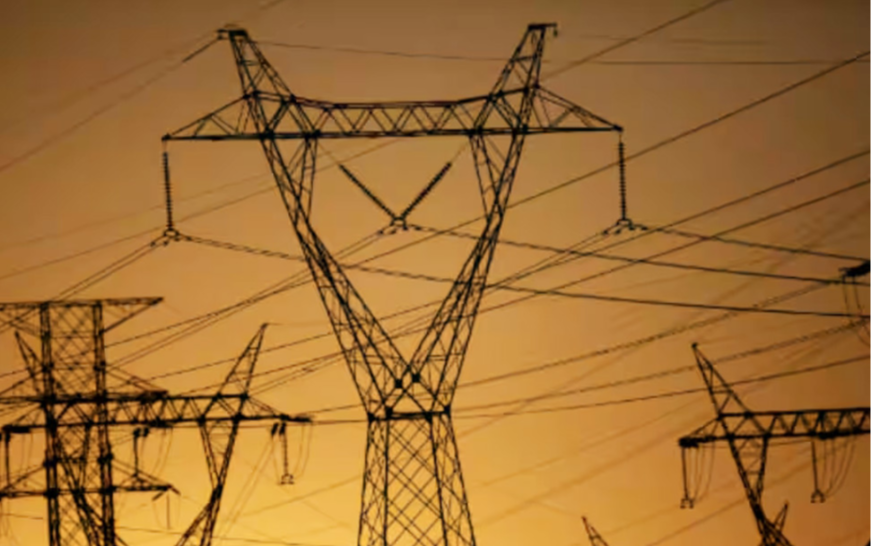-
CENTRES
Progammes & Centres
Location
US Congress passes 4 crucial bills; govt keenly aware of geopolitics in Indo-Pacific.

Over the past week, the US Congress achieved a significant legislative milestone by passing four crucial bills. Among these are three distinct pieces of legislation aimed at providing emergency appropriations to Israel, Ukraine, and the Indo-Pacific region through various federal agencies.
Additionally, a fourth bill was introduced with the intent of banning the popular social media platform TikTok.
The allocation comprises $60.8 billion designated to bolster Ukraine, while Israel is slated to receive $26.4 billion, including $9 billion specifically allocated for humanitarian aid intended for civilians affected by conflict, such as those in Gaza. A sum of $8.1 billion is set aside for the Indo-Pacific region, with a specific mention of Taiwan.
Moreover, the bill encompasses provisions aimed at imposing punitive measures on officials from Iran and Russia. Additionally, the bill mandates the sale of TikTok by its parent company, ByteDance, a Chinese entity, or face a ban on its operations within the US.
The bills have languished in the US House of Representatives due to fierce disagreement between Republicans and Democrats over two key issues.
For months, the bills have languished in the US House of Representatives due to fierce disagreement between Republicans and Democrats over two key issues. Originally introduced in the House, these bills collectively amount to $95 billion.
Republicans within the Congress viewed this deadlock as an opportunity to stall the bills and pressure the Democratic Biden administration into accepting stringent border control measures. One of the primary concerns driving Republican opposition is the perceived failure of the Biden administration to effectively address immigration issues. With as many as 7.2 million illegal immigrants having crossed the southern US border since the administration took office, Republicans aim to leverage this as a focal point to secure more votes in the upcoming elections.
Republicans have intertwined the issue of aid to Ukraine with border security in southern US, urging the Biden administration to address illegal immigration and deportation concerns. Their demands include expedited deportation of illegal immigrants and tightening the entry verification process for those seeking entry into the US.
Ultimately, the decision to introduce the bill in the House was made by the Republican Party under the leadership of House Speaker Mike Johnson, despite ongoing resistance from the ultra-conservative faction within his party. Speaker Johnson found himself at a pivotal juncture, balancing his political fortunes against his legacy.
Recognising the potential consequences of a continued deadlock in the US Congress, particularly regarding aid to Ukraine, Johnson chose to align himself with what he perceived as the “right side of history,” avoiding a fate similar to his predecessor, Kevin McCarthy. Critical to Johnson’s change of heart were intelligence briefings with the CIA chief regarding the evolving situation in the Russia-Ukraine conflict.
Despite facing entrenched opposition within his own party, including threats of deposition, Johnson was swayed by the urgency of the situation. Several factors likely contributed to Johnson’s eventual decision to introduce and pass the bill, despite opposition. Firstly, there was a noticeable softening of Donald Trump’s criticism of the border bill, coinciding with his legal troubles in New York. Secondly, mounting pressure on the US Congress to break its legislative inertia intensified as Ukraine faced escalating Russian aggression and suffered strategic setbacks on the battlefield, compounded by continued attacks on critical infrastructure by Russian forces.
The predominant question surrounding these bills concerning Ukraine is whether the aid package will suffice. In recent months, Ukraine has suffered significant losses, including strategic territories like Avdiivka and Bakhmut, with Russian forces now targeting the critical city of Kharkiv in Eastern Ukraine. Assessments indicate the potential for another Russian offensive during this summer.
Mounting pressure on the US Congress to break its legislative inertia intensified as Ukraine faced escalating Russian aggression and suffered strategic setbacks on the battlefield, compounded by continued attacks on critical infrastructure by Russian forces.
The proposed package could potentially bolster Ukraine’s air defence systems, crucial in thwarting further assaults from Russia. Ukrainian President Volodymyr Zelenskyy has openly acknowledged the asymmetric gap between Russian missile capabilities and Ukrainian defences.
The initial allocation of supplies, valued at $1 billion, includes a range of crucial resources such as air defence missile systems, HIMARS munitions, artillery projectiles, armoured vehicles, precision aerial munitions, anti-tank weaponry, small arms, equipment, and spare parts.
Despite the aid package being labelled as assistance for Ukraine, a considerable portion — up to $48 billion — is earmarked for American defence contractors. This allocation is intended to replenish depleted US inventories resulting from the prolonged conflict or to manufacture additional weaponry for Ukraine.
Arguably, the aid allocated to Israel holds equal significance for the Biden administration as it does for Ukraine. The issue of ceasefire in Gaza has ignited protests on college campuses across the US, prompting Biden to carefully calibrate his stance and actions in support of Israel.
Consequently, his firm message to Netanyahu that the US will not engage militarily in Israel’s escalation against Iran, along with the construction of a pier for aid in Gaza and advice against the Rafah offensive, have all contributed to Biden narrowing the polling gap with Trump domestically.
The aid package to Israel serves a dual purpose of reinforcing its defence systems, such as replenishing the Iron Dome, while also providing assistance to Gaza. However, the Biden administration has taken care to ensure that the approved funding does not flow to UNRWA, the primary UN agency for Palestine.
Amidst these, the Biden administration remains keenly aware of the geopolitical landscape in the Indo-Pacific and the escalating competition with China. In response to mounting concerns about China’s potential access to US user data via TikTok, one of the bills passed imposes a one-year ultimatum on ByteDance to divest all its assets in the US within 270 days. This legislative action underscores the broader information warfare dynamics shaping contemporary geopolitics, signalling a potential new great game between the US and China in the digital realm.
This commentary originally appeared in Financial Express.
The views expressed above belong to the author(s). ORF research and analyses now available on Telegram! Click here to access our curated content — blogs, longforms and interviews.

Professor Harsh V. Pant is Vice President – Studies and Foreign Policy at Observer Research Foundation, New Delhi. He is a Professor of International Relations ...
Read More +
Vivek Mishra is Deputy Director – Strategic Studies Programme at the Observer Research Foundation. His work focuses on US foreign policy, domestic politics in the US, ...
Read More +